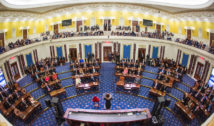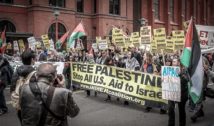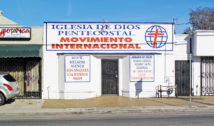Pope Francis Prays for those Lost at Auschwitz Death Camp
- By Nathan Glover --
- 01 Aug 2016 --
Pope Francis wrote a prayer for forgiveness in the Auschwitz commemorative book.
As part of his five-day tour to Poland, Pope Francis made a visit to the Auschwitz Nazi death camp where he spent some time in prayer, contemplation and mourning for the atrocities committed there. The visit was devoid of any public audiences, speeches or any other such spectacle, as he desired it to be a completely silent and solemn visit.
Pope Francis Prays for those Lost at Auschwitz Death Camp.[/tweetthis]
Accompanied with only a few chosen people, the Pontiff went round the camp, moved by the structures that formerly were signs of torture and pain. The camp saw the death of around 1.5 million Jews and also a number of Catholics. The Pope paid a silent tribute to the people who lost their lives there and honored the memory of the Catholics who were killed in their attempts to save the Jews. Instead of the conventional protocol of addressing a huge crowd with speeches, Pope Francis chose to simply sit on a bench outside the camp, praying silently for 15 minutes before entering the gates.
We should all take Auschwitz as a reminder of what happens when we label groups as "other"… https://t.co/5jOGThucIk
— Abbie B. Elliott (@abbie_b_elliott) July 29, 2016
The Pope walked through the grim and dark corridors of the cells trying to relive the tortures doled out to inmates. His steps were directed to the cell of Friar Maximilian Kolbe, a Franciscan monk who was killed there in place of another inmate. Fr. Kolbe offered to die in place of another prisoner when the latter was chosen to be executed. Fr. Kolbe believed that the other prisoner's life was more important as he had a family, whereas he himself as a person who had given up the worldly life had nothing to lose. His request was granted and was executed by the Nazis. Fr. Kolbe was later declared a saint by the Catholic Church. The Pope spent some time on his knees in this darkened cell, contemplating on the self-sacrifice and self-denial of the saint.
Pope Francis wrote a prayer in Spanish in Auschwitz's commemorative book:
“Lord, have mercy on your people. Lord, forgiveness for so much cruelty.”
Several hours after his visit, Pope Francis reflected on the trip, asking “Is it possible that man, created in God’s image and likeness, is capable of doing these things? Cruelty did not end at Auschwitz and Birkenau.” He continued, declaring, “It is still around today… in many places in the world where there is war, the same things are happening.”
The Pope also met the elderly survivors of the prison camp and spoke gently to them, offering them his prayers and blessings. One of the survivors offered him a candle, which he burnt at the wall where prisoners were executed. Later, during the World Youth Rally at Krakow, the Pope has been reported to have given a call for accepting the immigrants and refugees, as a reflection of his visit to the camp.


















